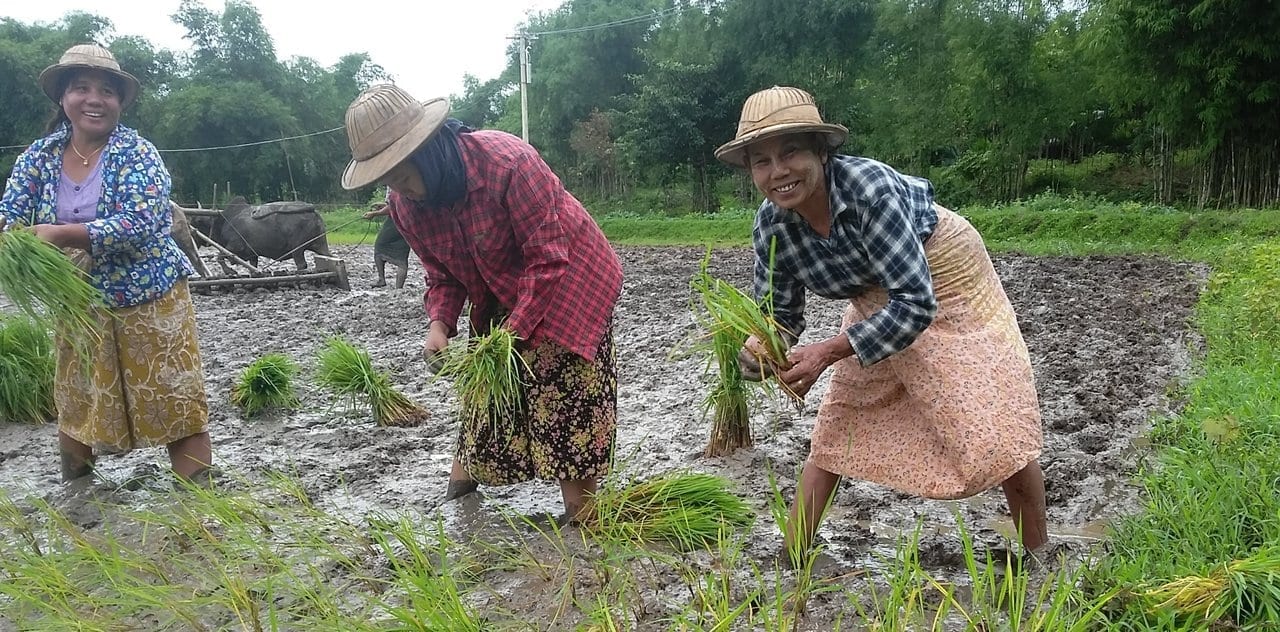
Aug 17, 2016
On a hot, damp morning in Hlae Ku Township, Myanmar, Kyin San surveys the rice fields spread below her, as Mg Zaw, knee deep in mud, drives two oxen to plow the remaining plot. For many years, Kyin San, like most of the farmers in the area, worried that her land would be confiscated for large-scale development, as had so many other farms over the years.
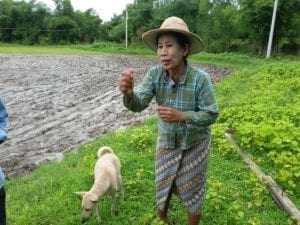
Burmese rice farmer Kyin San says by joining a union, farmers can share strategies and techniques to improve their craft. Credit: Solidarity Center/Tula Connell
But now, Kyin Sun says, farmers are no longer hesitant to negotiate with the government to settle disputes. Along with 10,000 other farmers in the township, Kyin Sun has joined the Agriculture and Farmer Federation of Myanmar (AFFM), part of the Confederation of Trade Unions–Myanmar (CTUM).
“Through CTUM, we have made much progress,” she says, speaking through a translator.
Farmers across Myanmar are the fastest growing group of workers forming unions since 2011, when a new law allowed creation of unions. Within weeks of the law’s passage, farmers, woodworkers, garment workers, hatters, shoemakers and seafarers quickly registered their unions.
Connecting Farmers
Htay Lwin, president of the Hlae Ku Township agricultural union, says farmers also have sought to join unions to learn new technical skills to improve their farming techniques, a goal Kyin San says has been advanced by union membership.
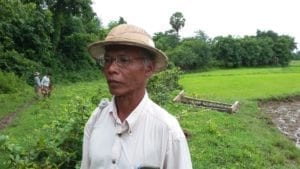
Union President Htay Lwin says many farmers are joining unions to protect their land from being confiscated for large-scale development. Credit: Solidarity Center/Tula Connell
“Now we can communicate with farmers across the country and share our experience with others,” she says.
AFFM members are connected with the Asian Farmers Association for Rural Development, a regionwide organization based in the Philippines that provides training on seed production, food safety and other issues, says CTUM President U Maung Maung.
Speaking from CTUM offices in downtown Yangon, Maung Maung discussed how the federation is moving forward with the plan he nurtured for decades during his political exile in Thailand.
“We are doing what we wanted to do for the past 30 years—building unions, getting into negotiations with employers, trying to develop policies with labor and management,” he says.
Rebuilding Worker Power after Decades of Dictatorship
Maung Maung was forced into exile after a violent military crackdown targeted thousands of pro-democracy demonstrators and labor leaders, many of whom were sent to prison. He returned to Burma in 2012 and since then, CTUM has helped some 60,000 workers organize unions. CTUM received official government registration last year.
Now, CTUM is working with policymakers to enact social welfare reforms and drafting recommendations for revising the country’s labor laws, many of which were enacted when the country achieved independence from Britain in 1948. After decades of military rule, Myanmar trails many Asian nations economically, and Maung Maung sees much work ahead in modernizing the workforce and developing a culture of social dialogue among workers, business and government common in other countries.
Fundamental to effecting the change CTUM envisions is educating workers about their rights. Workers for many years had no freedom to improve their working conditions, and unions now are helping them understand that they can stand up for their rights—and how to do so.
Because, as Maung Maung says, it all comes down to the workers.
“The workers have to know what they want—and they have to push for it.”
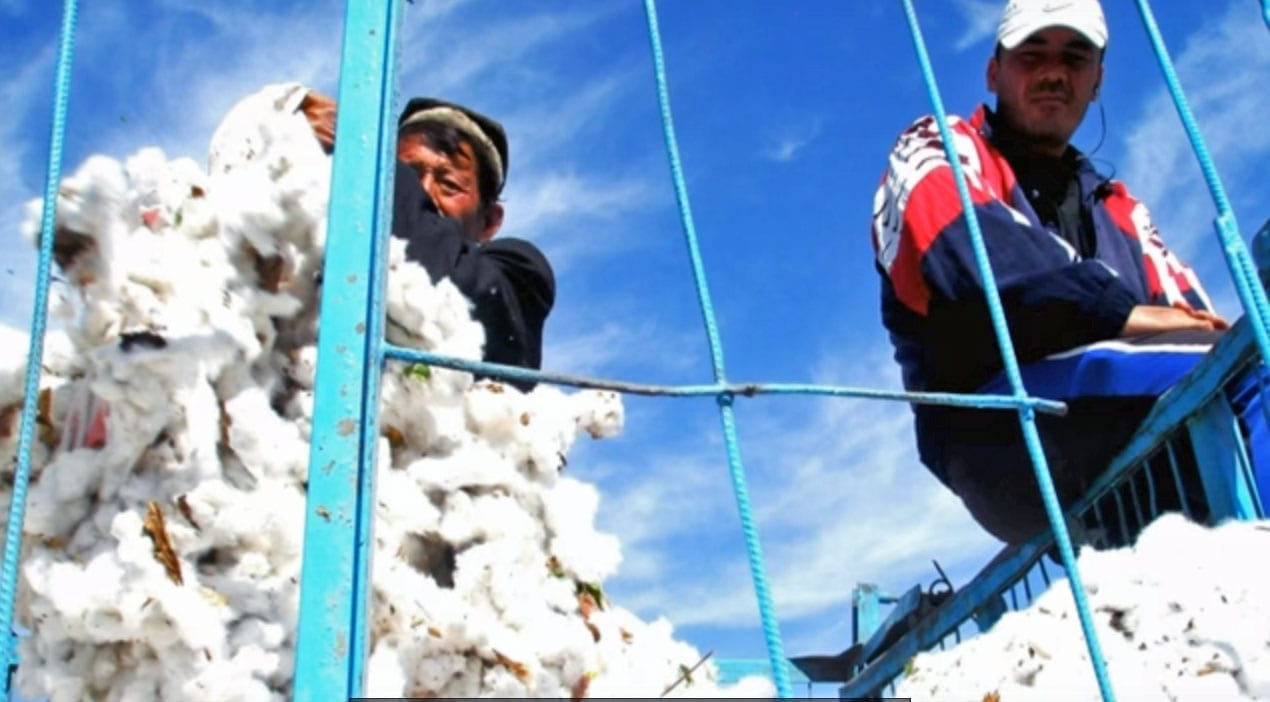
Jun 30, 2016
Uzbekistan and Turkmenistan, two countries where forced labor in cotton harvests is rampant, have been downgraded to the lowest ranking in the U.S. State Department’s 2016 Trafficking in Persons Report released this morning. The report also downgraded Myanmar (Burma) but boosted the ranking of Thailand, which a coalition of labor and human rights groups says has not meaningfully addressed human trafficking and should not have been upgraded.
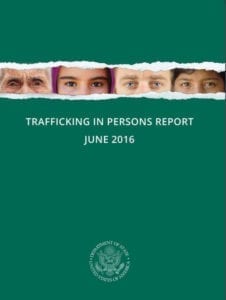 The report, which ranks countries based on their efforts to fight forced labor and human trafficking, downgraded Myanmar, Uzbekistan and Turkmenistan to the lowest level (Tier 3), meaning their governments do not comply with minimum U.S. Trafficking Victims and Protection Act (TVPA) standards and are not making significant efforts to become compliant.
The report, which ranks countries based on their efforts to fight forced labor and human trafficking, downgraded Myanmar, Uzbekistan and Turkmenistan to the lowest level (Tier 3), meaning their governments do not comply with minimum U.S. Trafficking Victims and Protection Act (TVPA) standards and are not making significant efforts to become compliant.
Each year, the Uzbek government forces more than 1 million teachers, nurses and others to pick cotton for weeks during last fall’s harvest. Last year, the government went to extreme measures—including jailing and physically abusing researchers independently monitoring the process—to cover up its actions.
In 2015, the State Department boosted Uzbekistan from Tier 3 to the “Tier 2 Watchlist,” saying the country was making efforts to become compliant with the TVPA, a move rejected by human rights activists who each year risk their lives to document widespread forced labor during cotton harvests.
Thailand Should Not Be Upgraded
Moving Thailand from the report’s lowest ranking is not warranted, according to a 13-member coalition, the Alliance to End Slavery and Trafficking (ATEST), which includes the Solidarity Center.
“Thailand’s lack of policy implementation and meaningful change on the ground calls for the lowest Tier 3 ranking,” says Kristen Abrams, ATEST acting director.
In June 2014, the State Department downgraded Thailand to the lowest ranking, due to reports of migrant workers, primarily from Burma and Cambodia, working in slave-like conditions on Thai fishing boats, fueling the country’s $7.3 billion seafood export industry and making it the world’s third-largest exporter. Today, many migrant workers still toil in forced labor and are held against their will on the boats where they are beaten and even killed. Thailand’s estimated 3 million migrants make up 10 percent of its workforce, but in seafood processing the make up 90 percent.
In releasing the report, U.S. Secretary of State John Kerry highlighted the plight of domestic workers, many of whom are working in countries far from their homes and are especially vulnerable to exploitation and abuse. Kerry announced the creation of a model contract for domestic workers based on international standards and a memorandum of understanding for origin and destination countries that sets clear standards designed to prevent the abuses of domestic work.
‘Malaysia Has Done Little to Address Trafficking’
This year’s report also fails to fix last year’s controversial upgrade of Malaysia, according to the coalition.
“More than a year after the discovery of mass graves of trafficking victims along the Malaysia-Thailand border, there is little evidence that Malaysia has taken anything more than meager steps to address its troublesome human trafficking situation,” Abrams says.
Among the 27 countries on Tier 3, the lowest ranking, are Algeria, Burundi, Haiti, Russia, Venezuela and Zimbabwe.
Profits from forced labor account for $150 billion per year, according to the International Labor Organization (ILO).
The report organizes countries into tiers based on trafficking records: Tier 1 for nations that meet minimum U.S. standards; Tier 2 for those making significant efforts to meet those standards; Tier 2 “Watch List” for those that deserve special scrutiny; and Tier 3 for countries that are not making significant efforts.
The Trafficking in Persons report, which has been issued annually for 16 years, covers 188 countries and is required by the 2000 TVPA law.
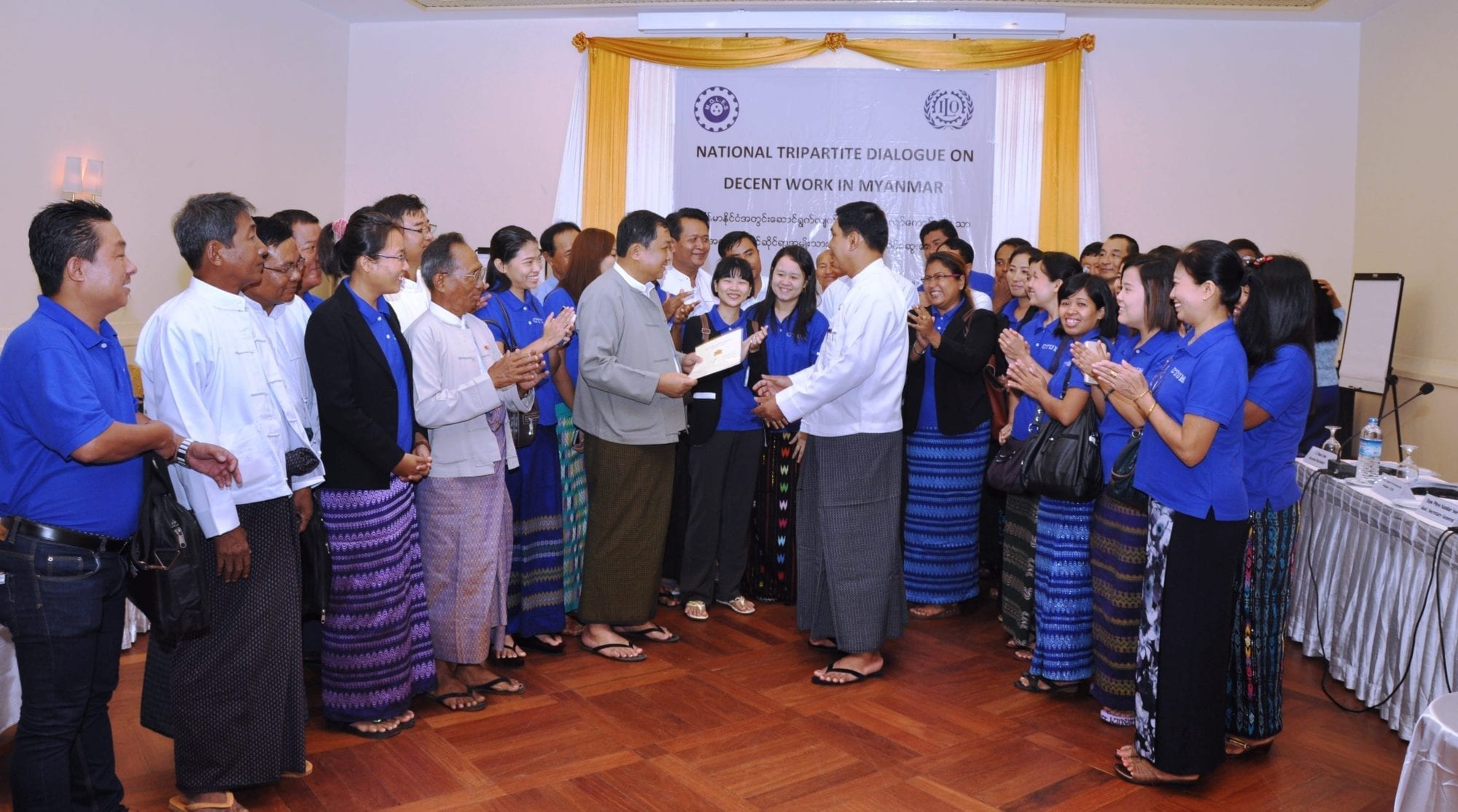
Jul 23, 2015
Fabulous news for working people in Myanmar: The government has officially recognized the Confederation of Trade Unions of Myanmar (CTUM), and registered the federation as representing “all Myanmar.”
In a ceremony today, CTUM President Maung Maung and other union leaders received the registration papers, with Maung Maung thanking “everyone who made this vision of ours come true.”
After a violent military crackdown on pro-democracy demonstrators that forced thousands of Burmese activists into prison or exile, Maung Maung spent 24 years in Thailand nurturing the union movement as general secretary of the Federation of Trade Unions – Burma (FTUB), now CTUM. In those difficult years, the FTUB was sustained in part through the international labor movement, the AFL-CIO, and the Solidarity Center. He returned to Myanmar in September 2012 after the government removed more than 2,000 people from a list of more than 6,000 pro-democracy supporters banned from entering the country.
CTUM is now working in 10 states across the country, “delivering basic training about the international trade union movement,” says Maung Maung.
“Workers want to understand how they can demand their rights.”
In a new Solidarity Center video, Maung Maung describes how the many years of keeping alive the union movement are now bearing fruit.
“Group meetings with workers can now be held freely where we can openly discuss issues such as the minimum wage law. This is what we have achieved.”
Dec 3, 2012
Political transformation is happening fast in Burma, but social and cultural change are just beginning—putting the country at a key tipping point for how it ultimately will be structured, says Pyi Thit Nyunt Wai, general secretary of the Federation of Trade Unions-Burma (FTUB).
“We’re starting at ground zero. The country is like dough that’s being kneaded. We must decide what shape it has to be,” he says.
Known familiarly as U Maung Maung during his 24 years in exile, the Burmese trade union leader joined Burmese employer groups, investors and representatives of U.S.-based multinationals in Washington, D.C., November 27 in a first-of-its-kind meeting sponsored by the AFL-CIO and Solidarity Center. The group discussed how to shape corporate responsibility and implement best practices as global multinationals consider investing in Burma. Now is the time to ensure their involvement is done right, says Maung Maung.
“Labor needs to be involved from the start. I would rather have workers’ rights built in from the beginning rather than added on later.” The most recent deadly garment factory fires in Bangladesh served as the meeting’s somber backdrop, a harsh example of a failed model of global corporate practice in which hundreds of garment workers have been killed in factory fires over the past few years.
Burma’s new labor laws, passed late last year, allow the creation of unions, with a minimum of 30 members. Within weeks of the laws’ passage, groups of woodworkers, garment workers, hatters, shoemakers, seafarers and other trades, including agricultural workers, registered openly as trade unions. There currently are 380 local unions registered with the government, and 500 more in line waiting for approval, Maung Maung says.
Trade union leaders are now organizing workers throughout Burma. At the same time, they are educating workers and employers about the need for workplace safety and health measures and other practices fundamental to ethically operated work environments. “I do believe there is political space so that trade unions and investors should work together” to ensure corporate social responsibility, says Maung Maung.
Maung Maung returned to Burma in September after nurturing the Burmese labor movement from Thailand during his long exile. He left Burma following a violent military crackdown on pro-democracy demonstrators that forced thousands of Burmese activists into prison or exile. Following the March 2011 formation of a more civilian government, Burma in April held free elections and Burmese democracy activist Aung San Suu Kyi was elected to Parliament, following 24 years of house arrest.
Maung Maung, who encourages multinational corporations to locate factories and operations in Burma and help create badly needed jobs, also has a message for those seeking to invest in the nation: “Let’s try to work together to form sustainable investment so we create an ethical economy.”
Maung Maung interviewed by Solidarity Center staff.
Sep 12, 2012
More than two decades after a violent military crackdown on pro-democracy demonstrators forced thousands of Burmese activists into prison or exile, Maung Maung has returned home. The general secretary of the Federation of Trade Unions – Burma (FTUB), Maung Maung spent the last 24 years nurturing the Burmese labor movement from his exile in Thailand.
“We are heartened by Maung Maung’s return to Burma,” says Tim Ryan, Solidarity Center regional program director for Asia. “We are confident that he and the leaders of the new unions that are organizing will significantly advance worker rights in the country in the coming years.” The primary mission of the FTUB—established in 1991—has been to build a democratic union movement within Burma while defending the rights of Burmese migrant workers in Thailand and India.
Maung Maung’s return was made possible by the government’s decision in August 2012 to remove more than 2,000 people from a list of over 6,000 pro-democracy supporters banned from entering the country. He arrived in Yangon (Rangoon), the former capital, on September 4.
In a first-person account of his arrival after more than two decades in exile, Maung Maung said he was first met by trade union leader and former political prisoner Myo Aung Thant and then by six members from the Special Branch police.
Afterwards, “I met my families: my wife and son, whom I had not seen all this time, and the trade union family that had developed over the last twenty years.”
“All was a blur,” he said. Maung Maung’s son was a toddler when the long exile began. His father, now 91, was “ready to discuss many issues.”
Local and regional press covered the return, including Radio Free Asia and Mizzima News, as well as international media.
On September 7, Maung Maung met with Labor Minister Maung Myint in Naypyitaw to discuss issues of concern to workers. These include minimum wages, work-related training, protection of worker rights and protection of migrants working in foreign countries.
Aye Cho, who attended the meeting at the ministry, told local news outlet Mizzima that Maung Maung and Maung Myint discussed workers affairs, but the conversation was lacking in detail.
Labor activists paid a heavy price for their efforts to bring democracy to Burma. Many were sent to Burma’s notorious jails or forced into long-term exile. FTUB Executive Committee Member Myo Aung Thant was imprisoned for more than a decade. In September 2007—after attending a training program at the American Center—six labor activists were imprisoned and sentenced to 20 years or more in prison.
In the past year, the government has instituted a variety of reforms, including the passage of a law allowing for the formation of trade unions.
The FTUB is a longtime partner of the Solidarity Center and the AFL-CIO.





 The report, which ranks countries based on their efforts to fight forced labor and human trafficking, downgraded Myanmar, Uzbekistan and Turkmenistan to the lowest level (Tier 3),
The report, which ranks countries based on their efforts to fight forced labor and human trafficking, downgraded Myanmar, Uzbekistan and Turkmenistan to the lowest level (Tier 3),